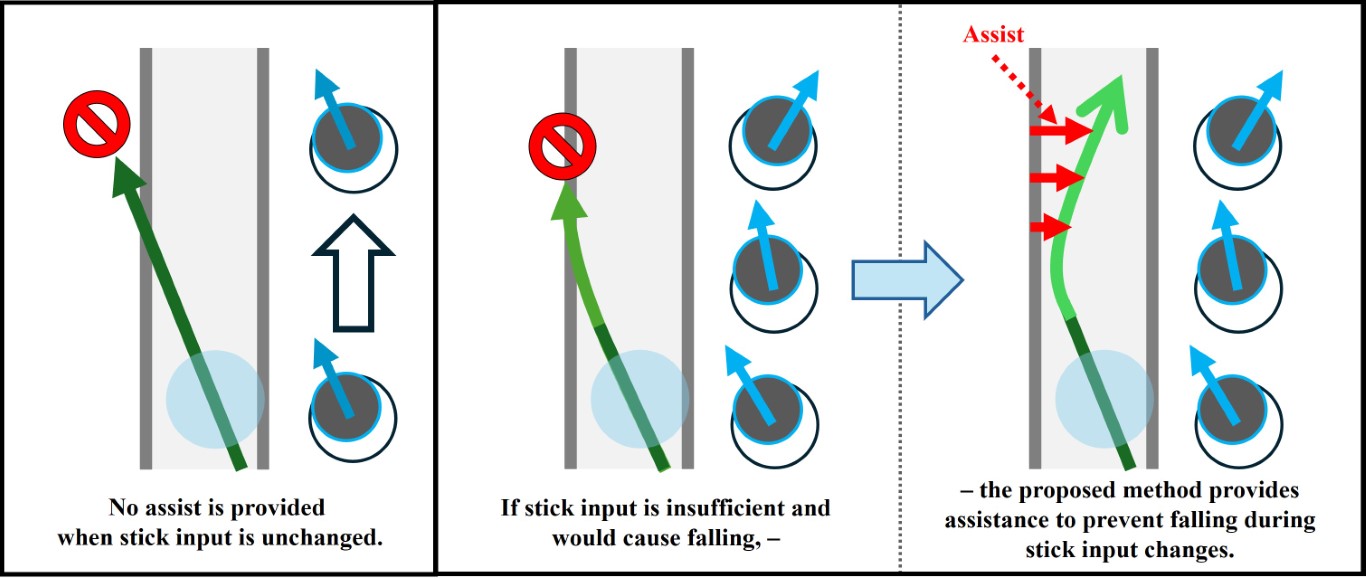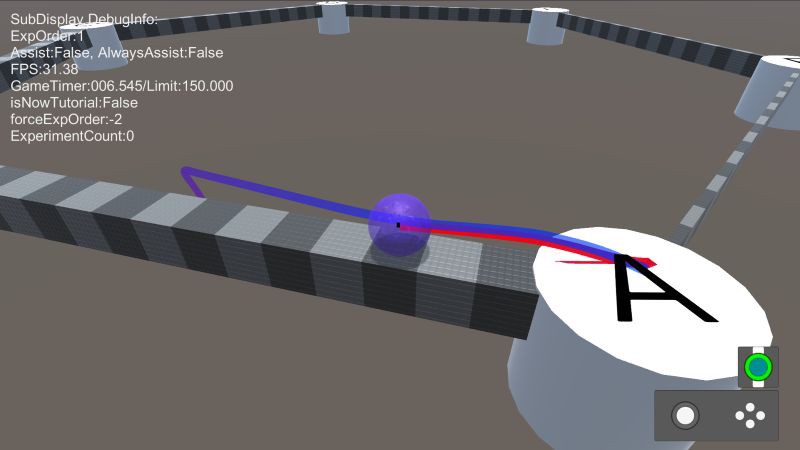In computer games, it is important to provide an appropriate experience tailored to the player’s skill level and experience. For novice players or those who struggle with certain operations, a mismatch between player intent and in-game action can cause frustration and disengagement. Therefore, reducing in-game penalties and minimizing player stress are important design considerations. One approach that has gained attention is assisting player operations. However, prior studies have shown that if players become aware of this assistance, its effectiveness is reduced.
To address this challenge, this study aims to develop and evaluate methods for providing imperceptible assistance that improves the player experience without being perceived by players.
Proposed System
In this study, we proposed an assistance system that supports the player operations only when the input direction of the analog stick changes. We chose this approach because if assistance were applied when the stick input is constant, the character’s direction might change even though the player is not actively operating the stick. This creates a mismatch between the player’s intended action and the character’s movement, making the assistance more noticeable and disrupting the player’s sense of control.
We implemented this assistance in a game where the player crosses narrow bridges. The system applies an external force that pulls the character toward the center of the bridge, proportional to the amount of change in the stick input. The greater the change in the stick input, the stronger the external force; conversely, when there is no change, no assistance is applied.

Experimental results showed that the proposed system was effective in reducing the number of falls and subjective difficulty. Furthermore, most participants did not notice the presence of the assistance or could not correctly identify whether it was present. These results indicate that the proposed assistance not only improved game performance, but also remained imperceptible to players.
Award
- Entertainment Computing 2025 General Session Excellence Award

